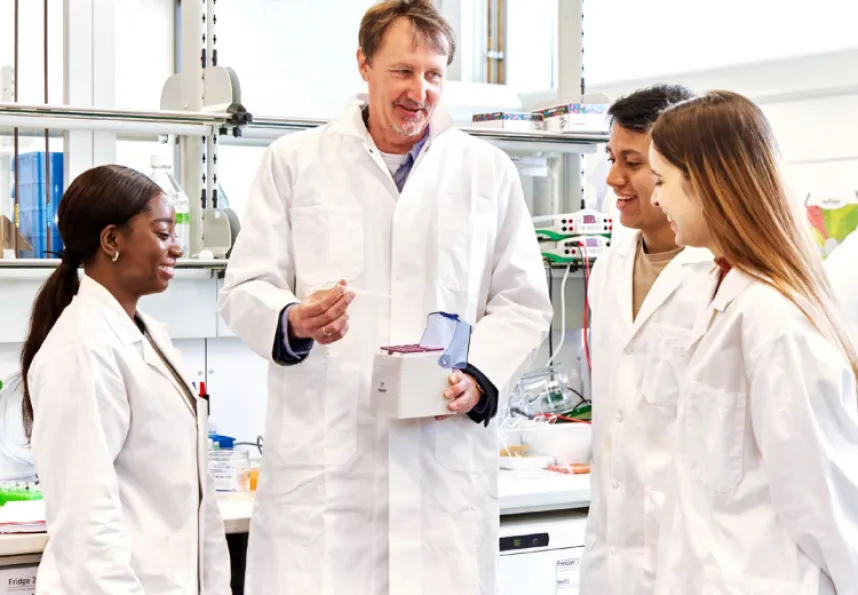Analytical Chemistry
Processed food is our main focus, and over the last decade, we have focused on a selection of popular products including black tea, roasted coffee, red wine, cocoa and plants from the Fabaceae (beans and pulses) and Ericaceae (Rhododendrons) families. In processed food, typically a few hundred plant primary and secondary metabolites are converted to thousands, at times tens of thousands of new chemical compounds. By harnessing the resolution and sensitivity of modern mass spectrometry, we can gain detailed insight into the structures formed. After we eat food, our bodies — through the gut, liver and other organs — change the chemical composition of the food constituents, producing a myriad of diverse compounds in human body fluids. Each step increases the chemical complexity and diversity of compounds, creating a considerable challenge to the analytical sciences.
To understand beneficial or adverse health effects of specific diets, we require a complete chemical understanding of the raw material, processed material, and metabolites following consumption. To achieve this goal, our group is developing novel mass spectrometric methods and strategies, mainly based on modern computational tools, artificial intelligence, and computer learning algorithms on big data sets.
- We identified antiviral compounds in coffee, which inhibit the SARS CoV-2 Spike protein ACE-2 receptor interaction (offering a plausible agent to prevent Corona infections).
- We identified antiviral compounds from figs to act against human Papilloma Virus.
- We developed novel data-science-based strategies to identify and detail human dietary metabolites in body fluids after cocoa and coffee consumption.
- We contributed to a better understanding of tea, coffee and cocoa composition and metabolome.
- We help to develop new products and improve processes in the cocoa industry (with Barry Callebaut Group).
- We developed aerosols produced from food waste extracts to disinfect public spaces.
- We organized the Fifth International Conference on Cocoa, Coffee and Tea (Cocotea 2019) on Constructor University campus, with more than 200 international participants.
- We collaborated and jointly published with international research partners from 14 countries, namely Spain, Sri Lanka, Canada, the United States, United Kingdom, Brazil, South Korea, China, Belgium, Switzerland, Italy, Egypt, France, and South Africa.
- Our publications show a strong contribution from undergraduate students’ research with nine publications listing 12 undergraduate students as co-authors.
The Kuhnert group currently comprises one postdoctoral fellow, three technicians, and six PhD students, as well as about 10 undergraduate students. Major funding sources included industrial funding from Barry Callebaut Group and public funding by the Bremer Aufbaubank as well as collaborative funding, for example, through the DAAD, Humboldt foundation, and Sri Lankan government.
- Megías-Pérez, R.; Shevchuk, A.; Zemedie, Y.; Kuhnert, N. Characterization of Commercial Green Tea Leaves by the Analysis of Low Molecular Weight Carbohydrates and Other Quality Indicators. Food Chem. 2019, 290.
- Hakeem Said, I.; Truex, J. D.; Heidorn, C.; Retta, M. B.; Petrov, D. D.; Haka, S.; Kuhnert, N. LC-MS/ MS Based Molecular Networking Approach for the Identification of Cocoa Phenolic Metabolites in Human Urine. Food Res. Int. 2020, 132.
- Andruszkiewicz, P. J.; Corno, M.; Kuhnert, N. HPLC-MS-Based Design of Experiments Approach on Cocoa Roasting. Food Chem. 2021, 360.
- Bikaki, M.; Shah, R.; Müller, A.; Kuhnert, N. Heat Induced Hydrolytic Cleavage of the Peptide Bond in Dietary Peptides and Proteins in Food Processing. Food Chem. 2021, 357.
- Schmidt, D.; Hakeem Said, I.; Ohl, N.; Sharifii, M.; Cotrell, P.; Kuhnert, N. Investigating the Interaction between Dietary Polyphenols, the SARS CoV-2 Spike Protein and the ACE-2 Receptor. Food Funct. 2022.

